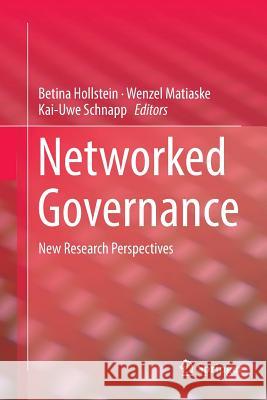Networked Governance: New Research Perspectives » książka
topmenu
Networked Governance: New Research Perspectives
ISBN-13: 9783319843872 / Angielski / Miękka / 2018 / 269 str.
Kategorie BISAC:
Wydawca:
Springer
Język:
Angielski
ISBN-13:
9783319843872
Rok wydania:
2018
Wydanie:
Softcover Repri
Ilość stron:
269
Waga:
0.39 kg
Wymiary:
23.39 x 15.6 x 1.47
Oprawa:
Miękka
Wolumenów:
01
Dodatkowe informacje:
Wydanie ilustrowane











